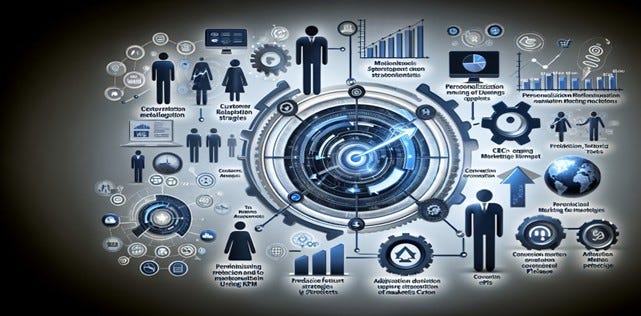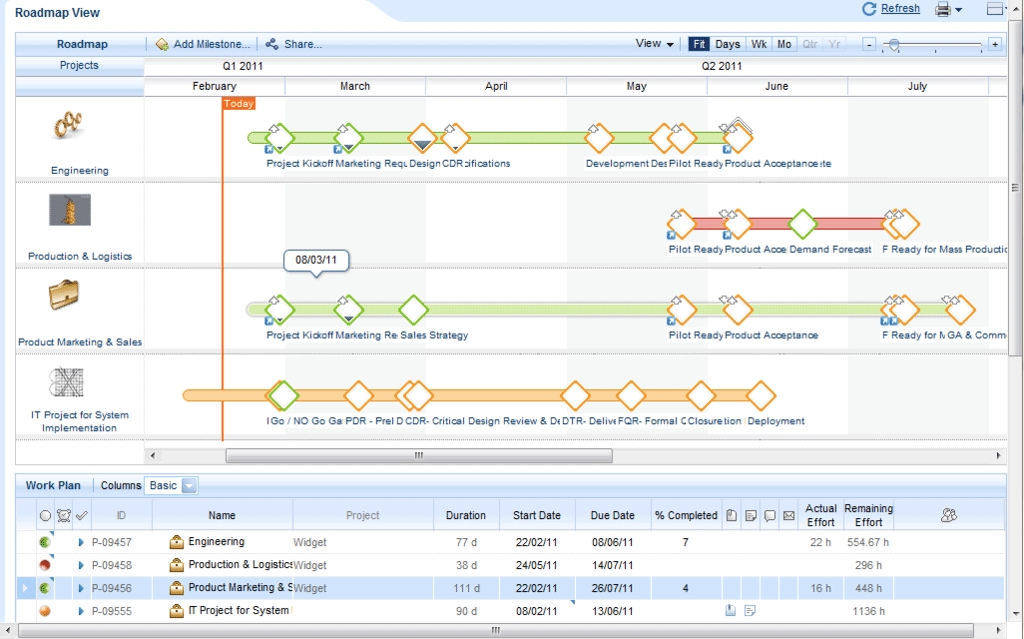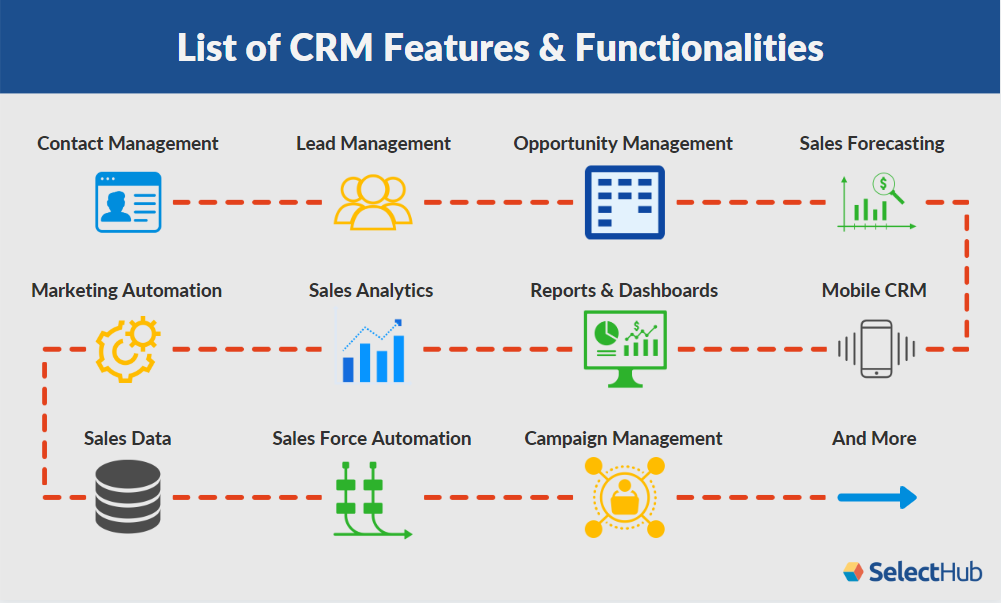CRM Marketing Insights 2025: Navigating the Future of Customer Relationships

CRM Marketing Insights 2025: Navigating the Future of Customer Relationships
The world of customer relationship management (CRM) is constantly evolving. As we approach 2025, the landscape is poised for significant shifts, driven by technological advancements, changing consumer behaviors, and the ever-increasing importance of personalized experiences. This article delves into the key CRM marketing insights that will shape the future, providing businesses with the knowledge and strategies they need to thrive in this dynamic environment.
The Rise of AI-Powered CRM
Artificial intelligence (AI) is no longer a futuristic concept; it’s a present-day reality that’s fundamentally transforming CRM. In 2025, AI will be deeply integrated into every facet of CRM, from data analysis and lead generation to customer service and personalized marketing campaigns. Businesses that fail to embrace AI will risk falling behind the curve.
Predictive Analytics: Anticipating Customer Needs
One of the most impactful applications of AI in CRM is predictive analytics. AI algorithms can analyze vast amounts of customer data to identify patterns, predict future behaviors, and anticipate customer needs. This allows businesses to proactively engage with customers, offer relevant products and services, and prevent churn. Imagine knowing a customer is likely to switch to a competitor before they even consider it – that’s the power of predictive analytics.
Hyper-Personalization: Tailoring Experiences at Scale
Personalization has been a buzzword for years, but AI takes it to a whole new level. In 2025, AI will enable hyper-personalization, allowing businesses to tailor customer experiences at scale. This means delivering highly relevant content, offers, and interactions based on individual customer preferences, behaviors, and past interactions. Forget generic marketing messages; AI will help you craft unique experiences that resonate with each customer.
Intelligent Chatbots: Enhancing Customer Service
Chatbots are already a common sight in customer service, but AI is making them even more intelligent. In 2025, AI-powered chatbots will be able to handle more complex inquiries, provide personalized recommendations, and even proactively reach out to customers to offer assistance. This will free up human agents to focus on more complex issues, ultimately improving customer satisfaction and reducing operational costs.
Data Privacy and Security: Building Trust in a Digital World
As CRM systems become more data-rich, data privacy and security will be paramount. Customers are increasingly concerned about how their data is being used, and businesses must prioritize transparency and ethical data practices to build trust. In 2025, CRM systems will need to be designed with robust security measures and a strong emphasis on data privacy.
Compliance with Data Privacy Regulations
Regulations like GDPR and CCPA have already set the standard for data privacy, and more stringent regulations are likely to emerge in the coming years. Businesses must ensure their CRM systems are compliant with all relevant data privacy regulations, including obtaining explicit consent for data collection, providing customers with control over their data, and implementing robust security measures to protect against data breaches.
Data Security: Protecting Customer Information
Data breaches can have devastating consequences, including financial losses, reputational damage, and loss of customer trust. In 2025, businesses must invest in robust data security measures, including encryption, access controls, and regular security audits. They should also educate their employees about data security best practices to minimize the risk of human error.
Transparency and Consent: Building Customer Trust
Customers are more likely to trust businesses that are transparent about how they collect, use, and protect their data. Businesses should clearly communicate their data privacy policies, obtain explicit consent for data collection, and provide customers with control over their data. Building trust is essential for long-term customer relationships.
The Evolution of the Customer Journey
The customer journey is no longer linear; it’s a complex and multi-faceted process that spans multiple touchpoints and channels. In 2025, CRM systems will need to provide a holistic view of the customer journey, allowing businesses to understand customer behavior across all channels and deliver seamless, personalized experiences.
Omnichannel Engagement: Meeting Customers Where They Are
Customers interact with businesses through a variety of channels, including websites, social media, email, and mobile apps. In 2025, businesses must embrace omnichannel engagement, providing a consistent and seamless experience across all channels. This requires integrating CRM systems with all customer-facing channels and providing employees with a unified view of the customer.
Customer Experience (CX) as a Competitive Advantage
In today’s competitive landscape, customer experience is a key differentiator. Businesses that prioritize customer experience are more likely to attract and retain customers. In 2025, CRM systems will play a crucial role in enabling businesses to deliver exceptional customer experiences, from personalized interactions to proactive customer service.
Journey Mapping: Understanding Customer Touchpoints
Journey mapping is a powerful tool for understanding the customer journey. By mapping out the various touchpoints a customer has with a business, businesses can identify areas for improvement and optimize the customer experience. In 2025, CRM systems will provide advanced journey mapping capabilities, allowing businesses to gain a deeper understanding of customer behavior and optimize their interactions.
CRM Integration and Automation: Streamlining Operations
In 2025, CRM systems will need to be seamlessly integrated with other business systems, such as marketing automation platforms, e-commerce platforms, and customer service tools. This integration will enable businesses to automate workflows, improve efficiency, and provide a more unified customer experience.
Marketing Automation Integration
Integrating CRM with marketing automation platforms allows businesses to automate marketing campaigns, personalize messaging, and track lead generation. This integration streamlines the marketing process and helps businesses nurture leads through the sales funnel.
Sales Automation Integration
Integrating CRM with sales automation tools helps sales teams manage leads, track sales progress, and close deals more efficiently. This integration automates repetitive tasks, freeing up sales representatives to focus on building relationships with customers.
Customer Service Automation Integration
Integrating CRM with customer service tools allows businesses to automate customer service workflows, resolve customer issues more quickly, and improve customer satisfaction. This integration streamlines the customer service process and helps businesses provide a more responsive and efficient service.
The Human Element: The Importance of Soft Skills
While technology is transforming CRM, the human element remains crucial. In 2025, businesses will need to invest in training their employees on soft skills, such as communication, empathy, and problem-solving, to ensure they can build strong relationships with customers and deliver exceptional customer experiences.
Empathy and Emotional Intelligence
Empathy and emotional intelligence are essential for building strong customer relationships. Employees who can understand and respond to customer emotions are better equipped to resolve issues, build trust, and create positive customer experiences. Training employees on empathy and emotional intelligence will be crucial in 2025.
Communication Skills: Clear and Effective Communication
Effective communication is key to building strong customer relationships. Employees must be able to communicate clearly, concisely, and professionally, both verbally and in writing. Training employees on communication skills, including active listening, clear writing, and persuasive communication, will be crucial in 2025.
Problem-Solving and Critical Thinking
Customers often contact businesses with complex issues that require problem-solving and critical thinking. Employees must be able to analyze problems, identify solutions, and implement them effectively. Training employees on problem-solving and critical thinking skills will be crucial in 2025.
CRM Marketing Strategies for 2025: A Roadmap to Success
To succeed in the CRM landscape of 2025, businesses will need to adopt a strategic approach. Here’s a roadmap to guide your efforts:
Data-Driven Decision Making
In 2025, data will be the lifeblood of CRM. Businesses must invest in data analytics tools and processes to collect, analyze, and leverage customer data to make informed decisions. This includes tracking key performance indicators (KPIs), such as customer acquisition cost, customer lifetime value, and churn rate, and using data to optimize marketing campaigns, sales strategies, and customer service processes.
Personalized Customer Journeys
Create personalized customer journeys that are tailored to individual customer needs and preferences. Use AI-powered tools to segment customers, personalize messaging, and deliver relevant offers. Focus on creating seamless and consistent experiences across all channels.
Proactive Customer Engagement
Don’t wait for customers to reach out to you; be proactive in engaging with them. Use AI-powered tools to identify potential issues and proactively offer assistance. Send personalized recommendations and offers based on customer behavior. Build a strong customer community and foster a sense of belonging.
Continuous Improvement and Adaptation
The CRM landscape is constantly evolving. Businesses must embrace a culture of continuous improvement and be willing to adapt their strategies as needed. Regularly review your CRM processes, analyze your results, and make adjustments to optimize your performance. Stay informed about the latest CRM trends and technologies and be prepared to adopt them.
Challenges and Opportunities
The future of CRM is filled with both challenges and opportunities. Businesses that are prepared to embrace these changes will be well-positioned to succeed.
Challenge: Data Silos
Data silos, where customer data is fragmented across different systems, can hinder businesses’ ability to gain a holistic view of the customer. In 2025, businesses must break down data silos by integrating their CRM systems with other business systems and implementing data management best practices.
Challenge: Keeping Up with Technology
The rapid pace of technological change can make it challenging for businesses to keep up. Businesses must invest in training and development to ensure their employees have the skills and knowledge they need to use the latest CRM technologies.
Opportunity: Increased Customer Loyalty
By delivering exceptional customer experiences, businesses can increase customer loyalty and build stronger relationships. This leads to increased customer lifetime value and positive word-of-mouth marketing.
Opportunity: Improved Efficiency and Productivity
CRM systems can automate tasks, streamline workflows, and improve efficiency. This allows businesses to reduce operational costs and free up employees to focus on more strategic initiatives.
Conclusion: Embracing the Future of CRM
The year 2025 will mark a new era for CRM. By embracing AI, prioritizing data privacy, understanding the evolving customer journey, integrating systems, and investing in the human element, businesses can build strong customer relationships and achieve sustainable growth. The future of CRM is bright, and those who are prepared to adapt and innovate will be the ones who thrive. It is a journey, not a destination, and the businesses that are committed to continuous improvement and customer-centricity will be the ones that succeed.


